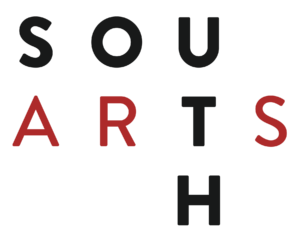
Family Tree
Director: Jennifer MacArthur Run Time: 97 min. Release Year: 2024
Join us for a Q&A following the film featuring subjects Nikki Jeffries with Tyrone and Edna Williams!
Family Tree explores sustainable forestry in North Carolina through the stories of two Black families fighting to preserve their land and legacy. Family Tree’s cinéma vérité approach reveals the vast task of maintaining the land while navigating challenging family dynamics, unscrupulous developers, and changing environmental needs. The forest itself and the beauty of its changing seasons become a primary character in this family drama.
“When I was 15, my family moved from Connecticut to Alaska, forever changing my relationship with the natural world. I had considered myself a preservationist up until that point. However, Alaska Natives’ struggle for traditional subsistence rights taught me that land use is a crucial part of environmental sustainability.
Protecting resources sometimes means using them. This is especially true for forested lands, whose owners often lack the resources and know-how to harvest their trees, so they sell to developers instead. When I returned to the Lower 48, I had a newfound understanding of how sustainable development and racial justice are inextricably linked. Equality and empowerment mean the freedom to choose and impact how resources are utilized for current and future generations. For many BIPOC communities, these rights have been for so long oppressed.
When it comes to African Americans, our rich history and legacy as stewards of this land are marred by Jim Crow. My grandfather escaped this racist violence in his hometown of Chase City, Virginia, leaving behind acres of heirs’ property that my family struggles to manage. I only learned of this by chance when researching for this project! It is no wonder that the current discourse on land development often renders African Americans invisible. Little is known about Black families like mine who own forested lands, let alone actively engage with business and government to develop their lands sustainably.
The agency and ingenuity of the Black family is a theme throughout my career, from the NPR oral history tour StoryCorps Griot to the critically acclaimed Sundance documentary Whose Streets?. Our everyday families, fighting not only to survive but to thrive, animate so much of America’s progress on justice and equity. I believe that, ultimately, the same holds true for the future of our changing climate.
In centering rural African American voices and experiences, Family Tree aims to ignite interest and energy among Black influencers who drive so much of the conversation in America. General audiences will be invited to rethink the meaning of sustainability, reclaiming the concept from the sterile confines of UN assemblies and university classrooms. Sustainability means family, land, ownership, and intergenerational wealth.
Family Tree is a timely and vital film project that reclaims the essential role African American families have had– and continue to have– in creating sustainable lands for us all.” – Jennifer MacArthur

Jennifer MacArthur is a filmmaker exploring the impact of our changing climate through the intersection of documentary and genre film. “Family Tree” is her directorial debut.
Previously, Jennifer produced the critically acclaimed feature documentary “Whose Streets?,” which premiered on DAY ONE of the 2017 Sundance Film Festival and sold to Magnolia Pictures. She has also produced for TIME Studios, Soledad O’Brien Productions, and Anonymous Content. She is a 2018 IFP Cannes Producers Network Fellow and 2016 Sundance Creative Producing Summit Fellow and a member of the board of directors for Storyline Media, an award-winning multi-platform, participatory, and interactive storytelling company.
A recognized expert in media engagement, Jennifer is a 2015 Creative Change Leader and 2015 Rockwood JustFilms Fellow. Over a ten-year period, she helped define the field with impact campaigns for “Traces of the Trade” (POV, 2008) and “Gideon’s Army” (HBO, 2013); engagement strategy for the ITVS social TV platform OVEE; and thought leadership for Doc Society’s “Impact Field Guide” and The Center for Investigative Reporting’s “Impact Tracker,” among others. Her work also took her to Amsterdam, Melbourne, and Guadalajara for keynotes addressing systemic racism, big data, and low-fi transmedia. Jennifer sits on the advisory board for Harmony Labs, a media research institute founded by Buzzfeed co-founder John S. Johnson.
Doc Society selected Jennifer for its inaugural Impact Producers Retreat in 2012. With producer Brenda Coughlin (CITIZENFOUR), she established the peer support network Impact Producers Group and launched Impact Socials, a networking event for creative change-makers. Her commitment to artist development kept her active on the festival circuit as an industry delegate, a
Lab Leader for IFP Labs (now The Gotham), and an advisor for Sundance Labs, Tribeca New Media, and the Mozilla Foundation.
Jennifer is a graduate of The New School’s film program in New York City. She lives and works in Los Angeles.


